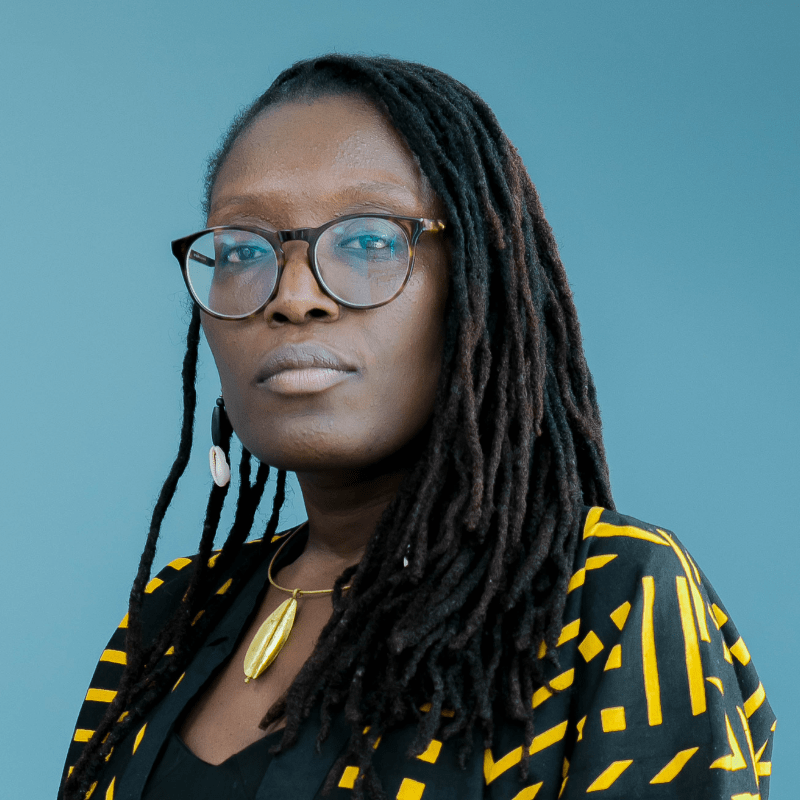Art by Alexis Peskine
Department of Modern Languages Launches the Center for Black European Studies and the Atlantic (CBESA)
The new interdisciplinary center unites leaders in the study of Blackness
By KellyAnn Tsai
The Department of Modern Languages at Carnegie Mellon University is pleased to launch the Center for Black European Studies and the Atlantic (CBESA), the first research center in the world dedicated to the collection, production, restoration, dissemination and promotion of scholarship on people of African descent in Europe.
Founded in 2022 by Mame-Fatou Niang, associate professor of French and Francophone studies, CBESA is an interdisciplinary research hub uniting leaders in the study of Blackness in the Atlantic triangle comprising Europe, Africa and the Americas. The Center’s steering committee includes scholars researching critical topics on equity, social justice and racial geographies, such as Marlene Daut (Yale University), Natasha Kelly, Felipe Gómez (Carnegie Mellon University), Olivette Otele (SOAS University of London), Cristina Roldão (University of Lisbon) and Joe Trotter (Carnegie Mellon University).
CBESA aims to establish Black European studies as an academic discipline and democratize the creation, access and sharing of knowledge on marginalized communities at a global level. It also seeks to connect a generation of students and scholars forging new paths in higher education.
The project-based center revolves around four axes:
- rePAIR, a series of residencies in Pittsburgh, Gorée Island and Martinique pairing artists, human-rights campaigners and researchers;
- Sea: A Journal of Black European Studies, the first academic journal devoted to Black Europe;
- B.E-Stream, a database on Black Europe; and
- TransE (Translate & Exchange), an online platform that links publishers and authors across the Atlantic region
“The work of CBESA is crucial and the Department of Modern Languages is thrilled and honored to support the Center’s mission,” said Anne Lambright, Paul Mellon Distinguished Professor of Hispanic Studies and head of the Department of Modern Languages. “I can think of no one better than Mame to spearhead this initiative and we look forward to fostering many collaborations.”
For Niang, the Center signifies both the culmination of seventeen years of academic research on Blackness in Europe, as well as official recognition of an important field of study.
“It is a dream to see CBESA come to life. I have lost count of how many times my colleagues and I have thought of a Center like this one, then brushed the idea off as something impossible,” said Niang. “I will be forever grateful to CMU for making this dream a reality.”
Although CBESA focuses on Black European studies, Niang, who is originally from France, could only found the Center in the U.S. because of what she calls “Europe’s enduring colorblindness.”
“African and Afrodescendants account for 3% of the population of continental Europe, but Black studies are completely absent from the region’s educational curricula,” she said. It was only by moving to the United States in 2006 that she learned the realities of slavery in her home country. “Up to three times more Africans were deported in the French sugar islands (West Indies) than in the United States.”
For Niang, the Center is also a way to pay this invaluable gift of knowledge forward. “By painting a fuller portrait of European history and culture, our projects also broaden perspectives on American and global history,” she said.
Niang will highlight these global connections, which are the cornerstone of the Center, through a number of workshops and conferences this fall. She will attend the 52nd Black Caucus Conference in Washington, D.C. as a member of an official delegation of eight scholars and legislators from the European Union. This gathering, together with her work with the United Nations’ Permanent Forum of People of African Descent in Geneva, Switzerland, aim to secure legislative support for international action against systemic racism and racial discrimination.
